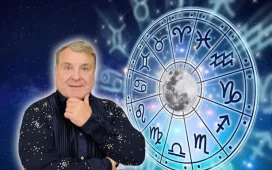After years of negotiation, controversy and confusion, when the clock strikes 11pm on Friday, Britain will leave the European Union. This historic moment, anticipated by some and dreaded by others, will see a number of changes.
But what will change? “Not a lot,” according to Euronews. “Most people in the UK and Europe will see no difference at all,” it adds.
This is because the UK will remain in the single market and the customs union until the end of the year as part of transition arrangements. Only after that will the biggest changes be felt.
However, while the most obvious impacts will come after the trade negotiations are either completed or abandoned, several changes will kick in on Friday.
EU citizenship ends
Holding a UK passport will no longer make you a citizen of the EU. However, EU travel benefits will continue to apply during the transition period. This means that although the HM Passport Office has begun to issue new documents without the “European Union” wording, UK citizens will still be able to travel within the EU during the transition period.
Citizens’ rights
A new deal will come into force aiming to protect the rights of three million EU citizens living in the UK and one million British citizens residing in the EU.
For the duration of the transition period, the arrangement will allow UK citizens to remain where they live and to continue receiving health care and pensions overseas.
It will also permanently grant residence rights to EU citizens living in the UK.
MEPs leave roles
The 73 MEPs who represent Great Britain and Northern Ireland in the European Parliament will leave their roles. The UK’s newly vacated parliament seats will be spread out among the EU’s 27 remaining countries. The BBC says that Spain and France will gain five more seats in a process that takes into account the population of a country.
Whitehall changes
The Department for Exiting the EU will be replaced by a Task Force Europe unit, within the Cabinet Office, led by David Frost, who will oversee negotiations for trade partnerships.
No more summits
The UK will stop going to EU summits, as Britain ceases to be part of EU decision-making structures. However, this will not be a drastic change because since September UK officials had already stopped attending most EU meetings.
No turning back
Probably the most significant change is the irreversibility of the exit. As of 11pm on Friday there’s no turning back: Britain cannot revoke Article 50 and will not be a part of the EU unless it applies to join.
–––––––––––––––––––––––––––––––
For a round-up of the most important stories from around the world – and a concise, refreshing and balanced take on the week’s news agenda – try The Week magazine. Start your trial subscription today
–––––––––––––––––––––––––––––––













